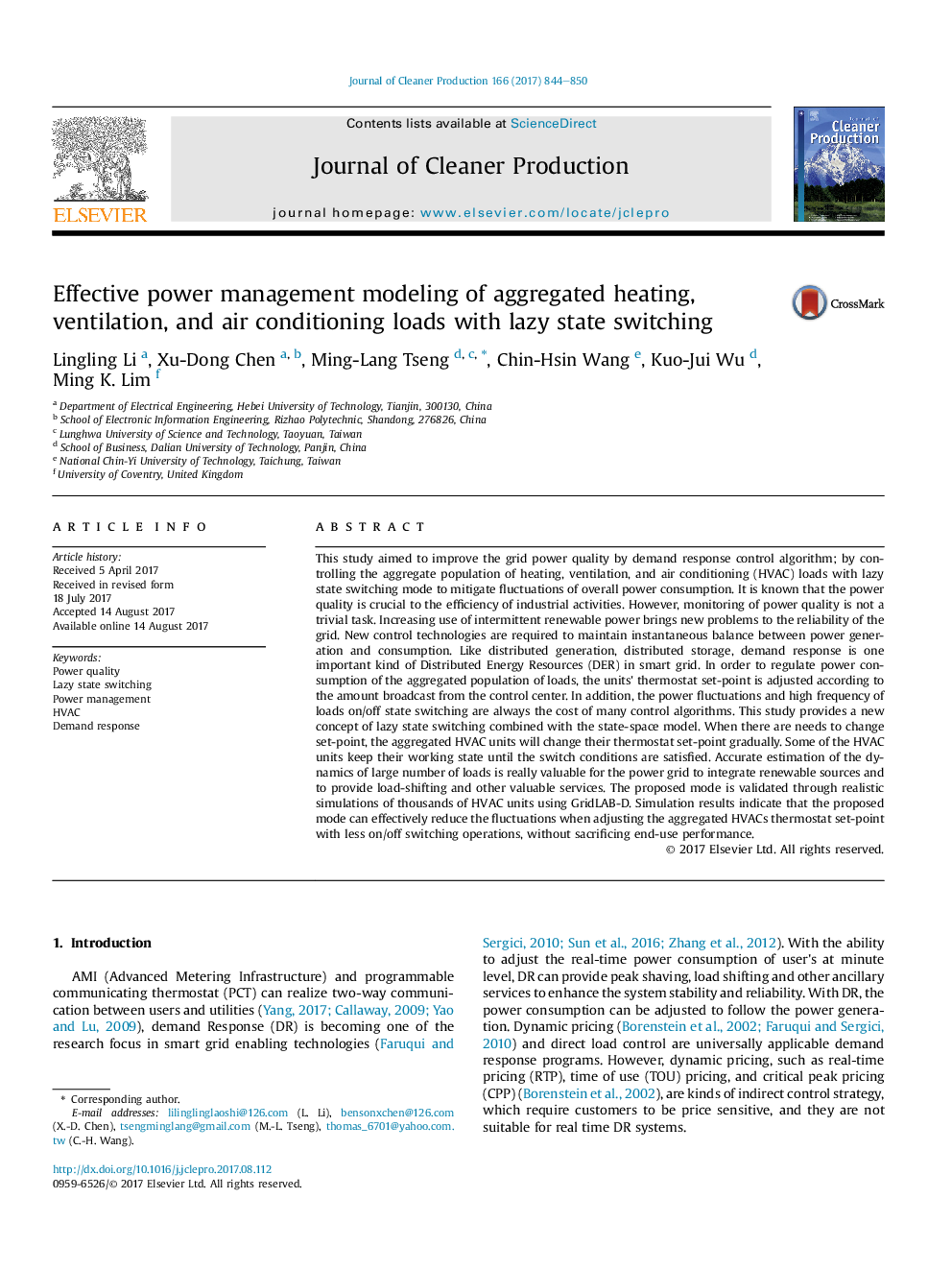| Article ID | Journal | Published Year | Pages | File Type |
|---|---|---|---|---|
| 5479954 | Journal of Cleaner Production | 2017 | 7 Pages |
Abstract
This study aimed to improve the grid power quality by demand response control algorithm; by controlling the aggregate population of heating, ventilation, and air conditioning (HVAC) loads with lazy state switching mode to mitigate fluctuations of overall power consumption. It is known that the power quality is crucial to the efficiency of industrial activities. However, monitoring of power quality is not a trivial task. Increasing use of intermittent renewable power brings new problems to the reliability of the grid. New control technologies are required to maintain instantaneous balance between power generation and consumption. Like distributed generation, distributed storage, demand response is one important kind of Distributed Energy Resources (DER) in smart grid. In order to regulate power consumption of the aggregated population of loads, the units' thermostat set-point is adjusted according to the amount broadcast from the control center. In addition, the power fluctuations and high frequency of loads on/off state switching are always the cost of many control algorithms. This study provides a new concept of lazy state switching combined with the state-space model. When there are needs to change set-point, the aggregated HVAC units will change their thermostat set-point gradually. Some of the HVAC units keep their working state until the switch conditions are satisfied. Accurate estimation of the dynamics of large number of loads is really valuable for the power grid to integrate renewable sources and to provide load-shifting and other valuable services. The proposed mode is validated through realistic simulations of thousands of HVAC units using GridLAB-D. Simulation results indicate that the proposed mode can effectively reduce the fluctuations when adjusting the aggregated HVACs thermostat set-point with less on/off switching operations, without sacrificing end-use performance.
Related Topics
Physical Sciences and Engineering
Energy
Renewable Energy, Sustainability and the Environment
Authors
Lingling Li, Xu-Dong Chen, Ming-Lang Tseng, Chin-Hsin Wang, Kuo-Jui Wu, Ming K. Lim,
